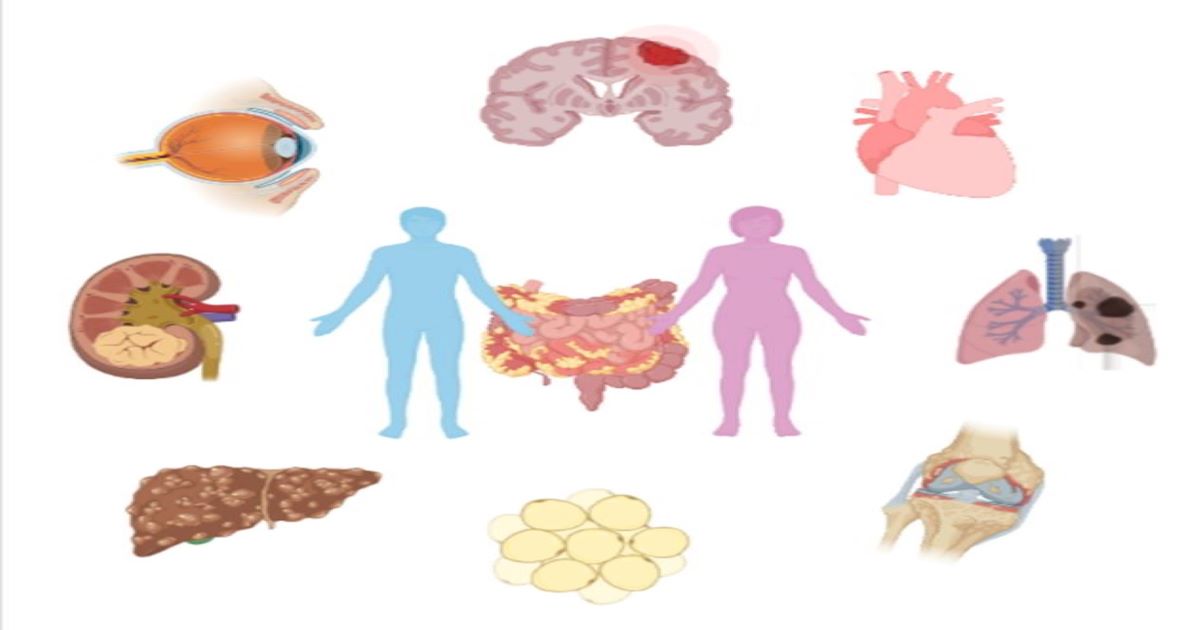Contents
- What Is Iga Nephropathy?
- The Causes: Unveiling The Insights
- Uncovering The Risk Factors
- Stages Of Iga Nephropathy: Progression And Prognosis
- Treatment Options: Managing Iga Nephropathy
- Alternative Therapies: Exploring Complementary Approaches
- Patient Education And Support: Living With Iga Nephropathy
- Promising Research And Future Directions
- Frequently Asked Questions Of Iga Nephropathy Review
- Conclusion
Iga nephropathy is a condition that affects the kidneys and causes inflammation. In this review, we will explore the causes, symptoms, diagnosis, and treatment options for iga nephropathy, as well as potential complications that may arise from the disease.
We will also discuss lifestyle changes and preventive measures that can help manage the condition effectively. Understanding the intricacies of iga nephropathy is crucial for both patients and healthcare providers to ensure timely intervention and proper management of this condition.
With proper care and treatment, individuals with iga nephropathy can lead a fulfilling and healthy life.

Credit: www.mdpi.com
What Is Iga Nephropathy?
Iga nephropathy, also known as berger’s disease, is a kidney disorder that affects the glomeruli. These are tiny blood vessels in the kidneys that help filter waste and excess fluid from the blood. The exact cause of iga nephropathy is unknown, but it is believed to be an autoimmune disorder.
It occurs when immunoglobulin a (iga) builds up in the kidneys, leading to inflammation and damage. Common symptoms of iga nephropathy include blood in the urine (hematuria), proteinuria (excessive protein in the urine), and high blood pressure. Diagnosing this condition involves a combination of urine tests, blood tests, and kidney biopsy.
Treatment options for iga nephropathy aim to control symptoms and slow down the progression of kidney damage. These may include medications to control blood pressure and reduce inflammation, as well as dietary changes to reduce protein and sodium intake. Regular monitoring and follow-up care are crucial for managing this condition effectively.
The Causes: Unveiling The Insights
Iga nephropathy, a kidney disease, has various underlying causes that scientists are currently investigating. The role of genetics in the development of this condition is being thoroughly examined, as it may be inherited from family members. Environmental factors are also believed to contribute to the onset of iga nephropathy.
These external elements include exposure to certain toxins or infections that can trigger the immune system to attack the kidneys. Understanding the causes of this disease is crucial in developing effective treatment strategies and prevention methods. Researchers are diligently working to unravel the intricate web of factors responsible for iga nephropathy, aiming to provide better insights for medical professionals and patients alike.
By unraveling the underlying causes, we can pave the way for improved management of this condition and enhance the quality of life for those affected.
Uncovering The Risk Factors
Iga nephropathy, also known as berger’s disease, is a kidney disorder characterized by inflammation of the glomeruli. Understanding the risk factors associated with this condition is crucial in order to prevent or manage it effectively. Age, gender, and ethnicity can play a role in the development of iga nephropathy.
Studies have shown that it primarily affects individuals between the ages of 16 and 35, with men being more susceptible than women. Additionally, certain ethnic groups, such as asians and caucasians, have a higher predisposition to the disease. Furthermore, other medical conditions, such as high blood pressure and autoimmune disorders, can increase the risk of developing iga nephropathy.
Lifestyle choices, including smoking and excessive alcohol consumption, can also contribute to the development and progression of the disease. Identifying and addressing these risk factors can greatly help in managing iga nephropathy and improving overall kidney health.
Stages Of Iga Nephropathy: Progression And Prognosis
Iga nephropathy, also known as berger’s disease, progresses through different stages with varying characteristics. The early stage usually involves microscopic blood in the urine, while the next stage may include proteinuria. As the disease advances, there is a higher risk of developing hypertension and decreased kidney function.
Complications can arise from these stages, such as chronic kidney disease and even end-stage renal failure. Prognosis differs for each individual, with some experiencing a slow progression and others a more aggressive course. Long-term outcomes generally depend on factors such as age, blood pressure control, and the extent of kidney damage.
Regular monitoring and appropriate management can help improve the prognosis and quality of life for patients with iga nephropathy.
Treatment Options: Managing Iga Nephropathy
Iga nephropathy, also known as berger’s disease, can be managed through various treatment options. Medications play a crucial role in controlling symptoms and slowing down the progression of the disease. These medications help reduce inflammation and protect the kidneys from further damage.
In addition to medications, lifestyle modifications are essential for supporting kidney health. This includes adopting a healthy diet, staying physically active, and avoiding excessive alcohol consumption. Lifestyle changes can help manage blood pressure and reduce stress on the kidneys. In some cases, surgical interventions may be necessary to treat or alleviate certain complications associated with iga nephropathy.
However, the choice of surgical interventions depends on the individual’s condition and should be carefully evaluated by healthcare professionals. Overall, a holistic approach involving medications, lifestyle modifications, and possibly surgical interventions can effectively manage iga nephropathy and improve long-term kidney health.
Alternative Therapies: Exploring Complementary Approaches
Alternative therapies play a significant role in managing iga nephropathy. Various complementary approaches, including acupuncture, herbal remedies, and dietary supplements, are gaining popularity. These treatments offer potential benefits for patients, considering both their effectiveness and safety. Acupuncture, for instance, has been shown to alleviate symptoms and improve overall kidney function.
Herbal remedies and dietary supplements, on the other hand, provide additional support by promoting immune system health and reducing inflammation. It is essential to explore these alternative therapies and understand their potential in enhancing iga nephropathy management. By incorporating these complementary approaches, patients may experience improved well-being and a better quality of life.
Careful consideration and consultation with healthcare professionals are crucial for determining the most suitable options for each individual. Embracing alternative therapies can broaden the horizon of iga nephropathy treatment and offer further hope to patients.
Patient Education And Support: Living With Iga Nephropathy
Living with iga nephropathy involves understanding the disease and making necessary lifestyle adjustments. Patients need to stay informed about their condition through patient education programs and resources. These initiatives play a vital role in helping individuals comprehend the disease process and manage its symptoms effectively.
Additionally, patients can improve their quality of life by making certain lifestyle modifications. This may include adopting a renal-friendly diet, staying physically active within the limits set by healthcare professionals, and managing stress levels. Moreover, patients and caregivers can find support through various support groups and organizations dedicated to iga nephropathy.
These resources provide a platform for individuals to share their experiences, receive emotional support, and exchange valuable insights. It is essential to emphasize the importance of patient education and the availability of supportive networks to ensure a well-rounded approach for living with iga nephropathy.
Promising Research And Future Directions
Iga nephropathy is a complex kidney disease that has spurred promising research and future directions. Current advancements in iga nephropathy research include cutting-edge treatments and ongoing clinical trials aimed at finding potential breakthroughs and advancing treatment options for this challenging condition.
Researchers are exploring innovative approaches to better understand the disease’s underlying mechanisms and improve diagnostic tools. They are also investigating potential therapies that can target the immune system to reduce inflammation in the kidneys, which is a key characteristic of iga nephropathy.
Additionally, future directions in research involve exploring the role of genetics and environmental factors in the development and progression of the disease. Overall, the ongoing research in iga nephropathy holds great promise for improved management and treatment outcomes for patients.
Frequently Asked Questions Of Iga Nephropathy Review
What Are The Symptoms Of Iga Nephropathy?
Symptoms of iga nephropathy include blood in urine, visible or microscopic, foamy urine, swelling in legs, ankles, feet, and face, and high blood pressure.
How Is Iga Nephropathy Diagnosed?
Iga nephropathy is diagnosed through a combination of urine and blood tests, kidney biopsy to confirm the diagnosis, and imaging tests to assess kidney function.
What Is The Treatment For Iga Nephropathy?
Treatment for iga nephropathy may include medications to reduce protein in the urine, control blood pressure, and reduce inflammation. In severe cases, dialysis or kidney transplant may be required.
Can Iga Nephropathy Be Cured?
There is no known cure for iga nephropathy, but treatment can help manage symptoms, slow the progression of kidney damage, and prevent complications.
Who Is At Risk Of Developing Iga Nephropathy?
Iga nephropathy typically occurs in young adults, with males being more commonly affected than females. It is more common in certain ethnic groups, such as asians and caucasians.
How Can I Prevent Complications Of Iga Nephropathy?
To prevent complications of iga nephropathy, it is important to manage blood pressure, maintain a healthy lifestyle, follow a balanced diet, and regularly monitor kidney function through medical check-ups.
Conclusion
Iga nephropathy, also known as iga nephritis, is a complex kidney disease that affects millions of people worldwide. This condition occurs when an abnormal protein called iga builds up in the kidneys, leading to inflammation and damage. It is important to note that the exact cause of iga nephropathy is still unknown, but genetic and environmental factors may play a role.
Early diagnosis and proper management are key to slowing the progression of iga nephropathy and preserving kidney function. Treatment options vary depending on the severity of the disease, but may include medications to control blood pressure and reduce inflammation, as well as lifestyle changes such as maintaining a healthy diet and avoiding alcohol and smoking.
By staying informed about the latest research and seeking regular medical care, individuals with iga nephropathy can better manage their condition and improve their quality of life. Remember, everyone’s journey with iga nephropathy is unique, so it is important to work closely with healthcare professionals to develop a personalized treatment plan.
Together, we can make a difference in the lives of those living with iga nephropathy.
{ “@context”: “https://schema.org”, “@type”: “FAQPage”, “mainEntity”: [ { “@type”: “Question”, “name”: “What are the symptoms of iga nephropathy?”, “acceptedAnswer”: { “@type”: “Answer”, “text”: “Symptoms of iga nephropathy include blood in urine, visible or microscopic, foamy urine, swelling in legs, ankles, feet, and face, and high blood pressure.” } } , { “@type”: “Question”, “name”: “How is iga nephropathy diagnosed?”, “acceptedAnswer”: { “@type”: “Answer”, “text”: “Iga nephropathy is diagnosed through a combination of urine and blood tests, kidney biopsy to confirm the diagnosis, and imaging tests to assess kidney function.” } } , { “@type”: “Question”, “name”: “What is the treatment for iga nephropathy?”, “acceptedAnswer”: { “@type”: “Answer”, “text”: “Treatment for iga nephropathy may include medications to reduce protein in the urine, control blood pressure, and reduce inflammation. In severe cases, dialysis or kidney transplant may be required.” } } , { “@type”: “Question”, “name”: “Can iga nephropathy be cured?”, “acceptedAnswer”: { “@type”: “Answer”, “text”: “There is no known cure for iga nephropathy, but treatment can help manage symptoms, slow the progression of kidney damage, and prevent complications.” } } , { “@type”: “Question”, “name”: “Who is at risk of developing iga nephropathy?”, “acceptedAnswer”: { “@type”: “Answer”, “text”: “Iga nephropathy typically occurs in young adults, with males being more commonly affected than females. It is more common in certain ethnic groups, such as asians and caucasians.” } } , { “@type”: “Question”, “name”: “How can i prevent complications of iga nephropathy?”, “acceptedAnswer”: { “@type”: “Answer”, “text”: “To prevent complications of iga nephropathy, it is important to manage blood pressure, maintain a healthy lifestyle, follow a balanced diet, and regularly monitor kidney function through medical check-ups.” } } ] }









